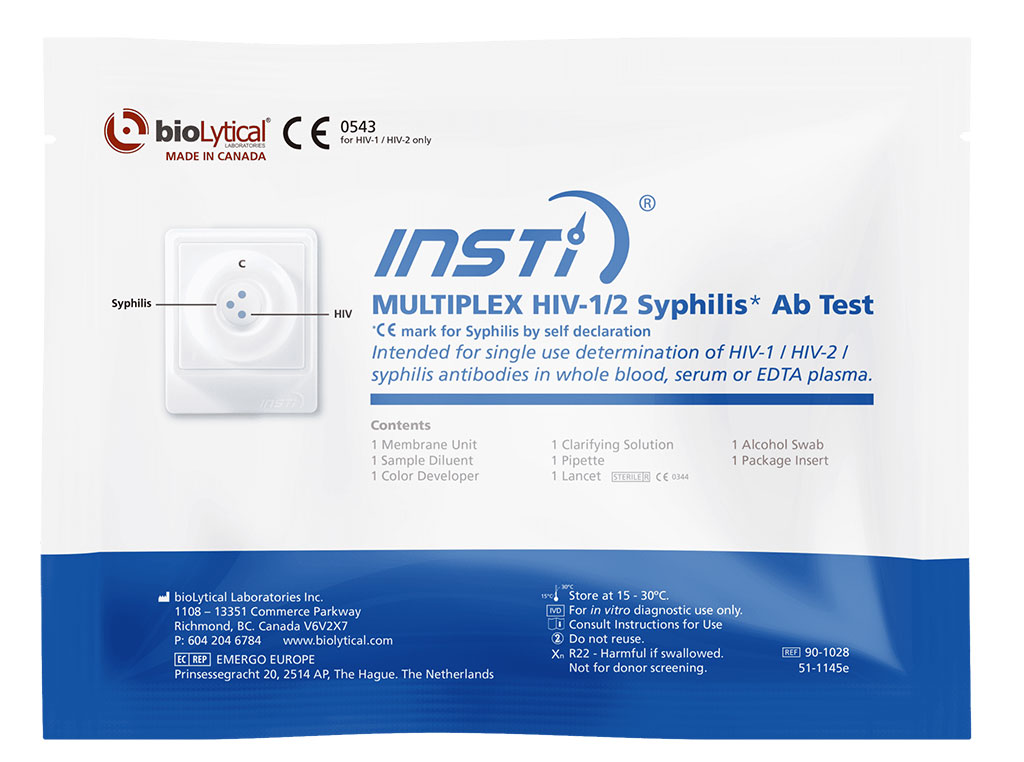POC Fingerprick Test Identifies Both HIV-1/2 and Syphilis Antibodies from One Sample within 60 Seconds
Posted on 29 Mar 2023
HIV and syphilis co-infection is a significant health concern affecting individuals worldwide. Now, a new test is designed to detect antibodies for both HIV-1/2 and syphilis using a single sample obtained through a simple fingerprick method. This test delivers accurate results in under a minute, while being mobile and easy to use. Healthcare professionals can now test individuals in various environments, providing flexible options for those facing barriers to accessing healthcare. The test represents a powerful tool for identifying individuals who require treatment for HIV and/or syphilis, preventing mother-to-child transmission, and reducing the worldwide spread of both infections.
The INSTI Multiplex HIV-1/2 Syphilis Antibody Test from bioLytical Laboratories Inc. (Richmond, BC, Canada) simplifies the testing process by providing results for two infections using just one sample. This innovative approach reduces test anxiety for patients and allows healthcare professionals to test more people in less time. The INSTI Multiplex HIV-1/2 Syphilis Antibody Test has been developed by bioLytical using its proprietary INSTI technology. The portable test is designed for professional use in point-of-care settings but can be performed in a variety of other settings and offers easy-to-understand results.

Clinical studies have shown that the test has a high level of accuracy, with sensitivity and specificity that outperform other tests in the industry. A study the importance of regular and frequent testing to help connect patients to care demonstrated that the real-time results provided by the INSTI platform enabled healthcare professionals to connect patients who tested positive for HIV to care, and the majority of those who tested positive for active syphilis (87.4%) were treated immediately after the point-of-care test results, while the remaining participants were treated within a median of four days.
The INSTI Multiplex HIV-1/2 Syphilis Antibody Test, which has been in use in Europe and Africa since 2016, has now been approved for use in Canada. With syphilis infection rates in Canada reaching unprecedented levels, having increased by 166% nationwide between 2017 and 2021, the approval of this test is a crucial step in addressing this public health issue. Despite decreased access to STBBI services during the pandemic, new infections have continued to increase by 20% between 2020 and 2021 across all demographics. The authorization of the INSTI Multiplex HIV-1/2 Syphilis Antibody Test for professional use in point-of-care settings will provide Canadians with easier access to early testing in various settings, regardless of their demographic.
Related Links:
bioLytical Laboratories













